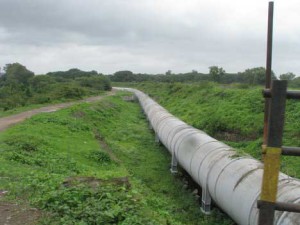From Guest Blogger Lizzie Weakly: Protecting the Environment–How to Prevent Ecological Risks in Your Community

Avoid Fertilizing Your Lawn
While most homeowners love the appearance of a lush, green lawn, fertilizer treatments do much more harm than good. When excess fertilizer runs-off into local bodies of water, the nutrients they contain can cause damaging algal blooms. These blooms can choke waterways with unattractive mats of algae that eventually decay to produce foul-smelling odors. Additionally, an overabundance of decaying algae can cause massive fish die-offs by starving them of oxygen. Minimizing, or completely eliminating, the use of fertilizer on your lawn helps preserve the health of local watersheds.
Dispose of Waste Properly
Improper disposal of certain household chemicals such as pesticides, automotive fluids, and swimming pool chemicals can be extremely damaging to the environment. They can be highly toxic to local human and wildlife populations and, in extreme cases, removal can necessitate costly environmental remediation. According to Sydney-based environmental assessment company Geotech Testing Pty Ltd, improper waste disposal is one of the leading causes of land contamination.
In order to avoid these risks, dispose of all potentially toxic chemical products at a local hazardous household waste facility.
Use a Commercial Car Wash
While cleaning your car at home might seem like a harmless activity, over time, it can do a great deal of damage to the local ecosystem. The dirty water that we wash off of our cars contains soap, motor oil, toxic residue from exhaust fumes, and other contaminates. Ultimately, this waste ends up in storm drains, which drain directly into local bodies of water. Using commercial car-washes is much more environmentally friendly, as these facilities often re-use wash water several times, before it is sent to a water treatment plant.
Employing some, or all, of the above practices are just a few of the many ways you can help protect the environment. Changing just a few of our daily habits can improve the overall health of the local ecosystem. You don’t have to be a scientist or environmental engineer to make a difference, and protecting your own community from ecological hazards is the first step in creating a happier, healthier world for yourself and future generations.
